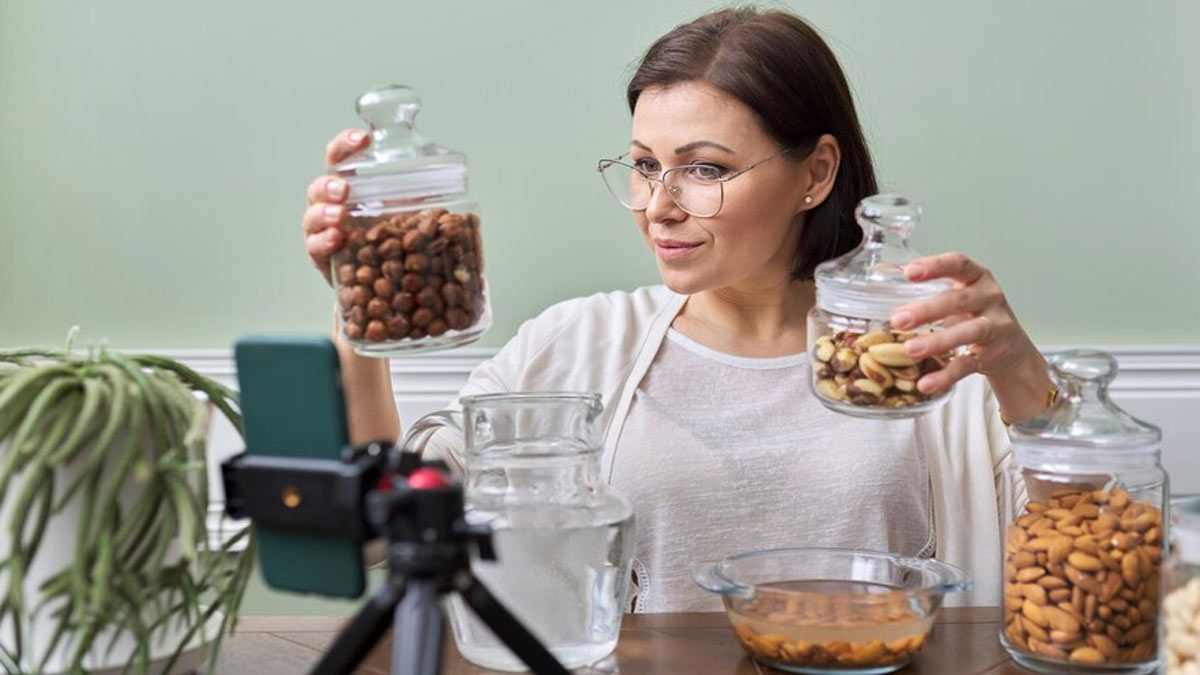
Soaking is a traditional food preparation method that has been used for centuries in many cultures around the world. Soaking foods before cooking or eating can have numerous benefits, including improved digestibility, increased nutrient absorption, and reduced levels of antinutrients. In this article, we will discuss some of the foods that are best to soak before eating.
Table of Content:-
Foods You Must Soak Before Eating
1. Legumes
Legumes are a staple food in many diets, including vegetarian and vegan diets. They are a great source of protein, fibre, and other essential nutrients. However, legumes also contain antinutrients, such as phytic acid, which can bind to minerals and reduce their absorption in the body. Soaking legumes overnight can help reduce the levels of antinutrients and make them more digestible. It can also reduce cooking time and make the legumes easier to cook.
To soak legumes, rinse them well and then soak them in water for at least 8-12 hours. Drain the water and rinse them before cooking.
2. Nuts and Seeds
Nuts and seeds are a great source of healthy fats, protein, and other essential nutrients. However, they also contain enzyme inhibitors and phytic acid, which can make them difficult to digest and reduce the absorption of nutrients. Soaking nuts and seeds can help reduce the levels of these antinutrients and make them more digestible.
To soak nuts and seeds, rinse them well and then soak them in water for at least 6-8 hours. Drain the water and rinse them before eating.

Also read: Is Liver Damage Reversible? Expert Weighs In
3. Whole Grains
Whole grains are an excellent source of fibre, vitamins, and minerals. However, they also contain phytic acid, which can reduce the absorption of nutrients and make them difficult to digest. Soaking whole grains can help reduce the levels of phytic acid and make them more digestible.
To soak whole grains, rinse them well and then soak them in water for at least 8-12 hours. Drain the water and rinse them before cooking.
4. Quinoa
Quinoa is a superfood that is rich in protein, fibre, and other essential nutrients. However, it also contains saponins, which can cause stomach upset and reduce nutrient absorption. Soaking quinoa can help reduce the levels of saponins and make it more digestible.
To soak quinoa, rinse it well and then soak it in water for at least 30 minutes. Drain the water and rinse it before cooking.

5. Rice
Rice is a staple food in many cultures around the world. However, it also contains phytic acid, which can reduce the absorption of nutrients and make it difficult to digest. Soaking rice can help reduce the levels of phytic acid and make it more digestible.
To soak rice, rinse it well and then soak it in water for at least 30 minutes. Drain the water and rinse it before cooking.
Also read: Is Liver Damage Reversible? Expert Weighs In
6. Oats
Oats are a great source of fibre and other essential nutrients. However, they also contain phytic acid, which can reduce the absorption of nutrients and make them difficult to digest. Soaking oats can help reduce the levels of phytic acid and make them more digestible.
To soak oats, rinse them well and then soak them in water for at least 8-12 hours. Drain the water and rinse them before cooking.
Soaking foods before cooking or eating can have numerous benefits, including improved digestibility, increased nutrient absorption, and reduced levels of antinutrients. Some of the foods that are best to soak before eating include legumes, nuts and seeds, whole grains, quinoa, rice, and oats. By incorporating soaking into your food preparation routine, you can enhance the nutritional value of your meals and improve your overall health and well- being.
Also watch this video
How we keep this article up to date:
We work with experts and keep a close eye on the latest in health and wellness. Whenever there is a new research or helpful information, we update our articles with accurate and useful advice.
Current Version